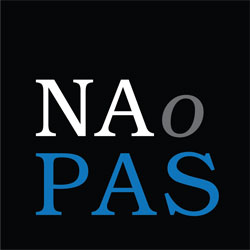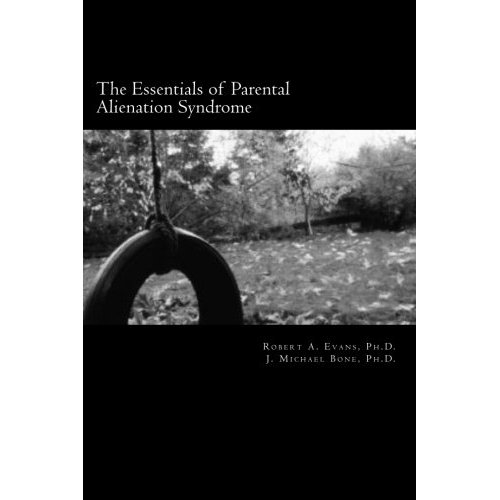As an Expert Witness I am frequently contacted by attorneys and their clients about what roles I can play in their child custody cases.
It is important to clarify upfront that an Expert Witness can participate in only one role per case, so it must be determined early on whether how the case would benefit the most from an Expert.

Here is a list of the Top 5 Issues to Consider When Hiring Expert Witness for a Child Custody Case:
- When talking with an Expert Witness it is critical that you, the client, do not spend a lot of time discussing a lot of details of your case because the expert will no longer be consider unbiased and the expert’s participation would then be restricted to that of a consultant who will not be able to testify.
- An Expert Witness can review a previous evaluation and identify strengths and weaknesses in the report to determine if the body of the report supports the recommendations (frequently they don’t).
Having completed that, the expert frequently requests that the attorney ask for a copy of the evaluator’s. Sometimes a simple subpoena is enough and sometimes a Court’s order is needed to produce the file.
Having the report and the file, the expert is now working from the same data sources as the previous evaluator, however, even though the expert has the entire file (test data, notes, etc.) the expert may only comment on the evaluation and the process used to produce the report, they cannot make any recommendations as to the timesharing or custody matter in the particular case.
The expert can then educate the court on significant issues that may have surfaced or failed to arise in the investigation. If, for example, there is evidence that Parental Alienation (PA) may have been a factor in a case.
- An Expert Witness can also give instructional testimony. In this role, the expert is retained to instruct the Court what Parental Alienation is, that it is child abuse, what evidence might suggest the presence of alienation, the detrimental effects it can have on children and how to reunify a reject parent and alienated child.
In most cases the expert will not have reviewed any documentation nor had any discussions with any of the litigants. They will come to court just to discuss PA and answer questions. The questions they are asked are typically based on the facts in the case in question.
- As a trial consultant an Expert Witness can assist one side of a case in formulating questions for examination and cross examination of experts, witness selection and questioning, reviewing documents and formulating questions, authors of documents, etc. In this role the expert is a part of the attorney’s work product, not discoverable and do not testify.
- If an Expert Witness has not played any of the above roles, and has had little or no contact, they can conduct a timesharing evaluation (formerly referred to as a child custody evaluation) but should be ordered by the court to do so. There may be an advantage to having the expert appointed as a Guardian Ad Litem (GAL) assuming the expert would qualify for such an appointment.
Generally speaking, the above roles can be exercised throughout the United States, local laws permitting.



I didn’t know that expert witnesses and child custody attorneys worked so closely with one another. I have a friend who suggested that I look at hiring an expert witness, but wasn’t sure what his role would be in conjunction with my attorney, and now I have a much better understanding. Thanks for sharing!
Expert witnesses and attorneys usually work closely depending on the role the expert is playing in a case. Regardless of the role experts are supposed to be working for the court when the give testimony. If an expert is not giving testimony, then they can part of the attorney’s work produce is not discoverable. In that role they can craft questions for the attorney to ask other witnesses, they can advise the attorney about custody evaluations that were conducted in the case, etc. Exerts can do what is referred to as Instructional Testimony, where they instruct the court on an issue in a case. Most commonly for me it’s about Parental Alienation, what it is, why it’s harmful to children, how can one detect it, what can be done about it. Experts can review documents, evaluations, transcripts of depositions, etc. and give an opinion as to what may be going on in a case within a reasonable degree of psychological certainty. Experts cannot tell the court if something has or has not occurred in a case because they typically have not interviewed any of the parties, or tested anyone, etc. I hope that answers your question, if not feel free to contact me at my office I’ll be glad to answer any of your questions or your attorney’s. The best to you.
Everything I have read about PA reads like a checklist from what I am observing in my daughters behavior. I think an expert witness would be beneficial, so why are my next steps? I no longer live in Pinellas, and this custody case is in NJ, would that matter?
Your location does not matter, I’ve been hired by attorneys in NJ before.
If a court orders a custody evaluation and the forensic psychologist has several ethical violations and then when being cross examined the end of the day comes, the next court day is a month away, he is called out for bias and several lies, he then goes and conducts additional eval things he didnt do is that wrong? the eval was out for over 90 days, my consent expired and he issued anther page of a report trying to cover his tracks, also he was critqued by anther forensic psychologist and found to have violated many standards but he is helping the attorney he has a relationship with as an expert against me. that doesnt seem like its legal, any advice would be help full.
It seems the forensic psychologist found and hopefully reported the shortcomings.
A judge ordered a parenting time evaluation. One party did not agree with the evaluator’s recommendation of equal parenting time and is now petitioning the court to allow an expert to review the evaluation. Is this normal ?
Yes, getting a review and critique of these evaluations is common. Of course, one could have a rebuttal of the review as well; it goes both ways.
Can a expert witness who was hired by one parent to evaluate his parental fitness, relationship with his three year old child who he abandoned for the first two and half years of his daughter’s life , and drug recovery progress be a better witness to a guardian at litem investigation or report. Why would that person hire a expert witness but only to challenge a GAL report??
The answer is “maybe.” A forensic expert can evaluate a parent’s parental fitness in general. I suggest that in order to answer parenting skills relative to a particular child, the child should at least be interview/observed and the parent-child interaction needs to be observed as well. The circumstances of a particular case need to be explored. For instance, why did a parent “abandon” the child for the first two and a half years? This absence needs to be fully explained. Was the absence solely due to the parent or were there other issues going on such as incarceration, parental interference, etc? The drug involvement and recovery issues need to be investigated as well. Also, challenging the GAL report is also common. Depending on the circumstances of the case, how well prepared was the GAL to provide an adequate report to the Court or did the GAL have expertise in the specific issues of the case? In addition, was the GAL’s experience adequate in helping a Court make a decision on a time-sharing or whatever the matter was before the Court? So there are a number of possibilities that need to be considered in answering your question. Having said all that, in general GALs are very influencial to Courts and it can be difficult to convience a Court to give such reports less weight than they would orgindarily.